Snail Farming
Snail cultivating in Nigeria is thought to be a standout amongst the most lucrative agribusiness you can begin with low capital. However, it is a standout amongst the most disregarded creature raising business in these nations. Snail cultivating gives one of the finest chance to profit inside a brief timeframe. Be that as it may, why are Africans not yet completely occupied with this cash making creature raising? The reason is numbness.
In Australia and USA, snail cultivating is huge business, giving chances to numerous agriculturists. In Uk, snails can be seen in numerous grocery stores and stores. meaning it is a major ordeal there. The vast majority in Nigeria Ghana still have the trust that snail must be picked in the bramble. The way of life of setting off to the hedge to pick snails in the towns amid sprinkling time has been there for ages. Along these lines, it is troublesome for individuals to come to term that snail can really be kept and developed at home.
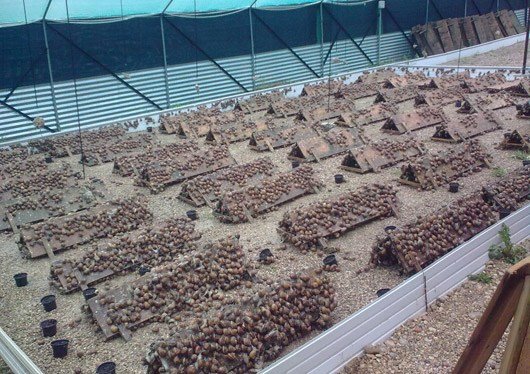
Much the same as numerous different parts of cultivating in these nations, Africans are yet to find the immense cash making potential in this business and that is the reason we endure in appetite and destitution. We disregard where the cash is and continue seeking after it where it isn't, going from one city to the next searching for one trivial China made merchandise after another to exchange on. Working without end in Europe and America looking for greener fields when our own particular mainland is as of now green.
What is Snail and How Profitable is Snail Farming?
Land snails has a place with the class of Molluscan, Gastropod. The one prevalently known as 'Congo Meat' in numerous parts of Africa. Nigeria – Eju, Igbin, and so on… There are such a significant number of types of snails however the sorts we are taking a gander at here are the ones that are appropriate for business Snail Farming in Africa.
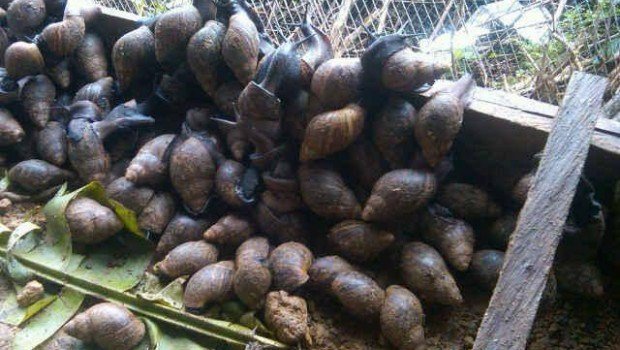
Which Snail Species is Suitable for Snail Farming?
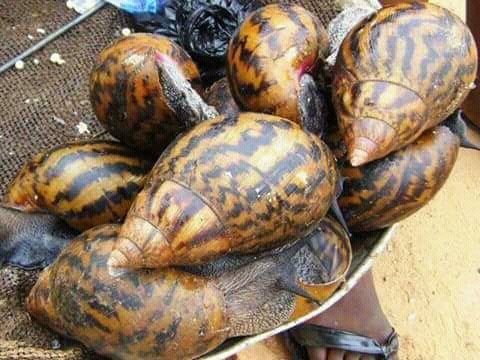
- Achatina Fulica:
The East African land snail, or mammoth African land snail, logical name Achatina fulica, is a types of vast, air-breathing area snail, an earthly pulmonate gastropod mollusk in the family Achatinidae. It is the littlest in estimate among all the alluring species for raising in Africa.
.jpg)
Achatina fulica has a restricted, funnel shaped shell, which is twice the length it is wide and contains 7 to 9 whorls when completely developed. The shell is by and large rosy dark colored in shading with powerless yellowish vertical markings yet colouration fluctuates with ecological conditions and eating regimen. A light espresso shading is normal. Grown-ups of the species may surpass 20cm in shell length yet for the most part normal around 5 to 10cm. The normal weight of the snail is around 32 grams (Cooling 2005).
- Achatina
Achatina, regular name the goliath Ghana snail, otherwise called the monster tiger arrive snail, is a types of huge, air-breathing area snail, an earthbound pulmonate gastropod mollusk in the family Achatinidae. Mammoth African land snails are hemraphrodites, meaining they have both the female and male conceptive organs. Two snails are as yet required for rearing, yet they are exceptionally productive reproducers.

Like alternate species in the sort, achatina's shell can achieve a length of 200 mm and a most extreme width of 100 mm. They may have between 7-8 whorls and the shell is frequently extensively praise. The body of the creature is silver-darker in shading in spite of the fact that pale skinned person transforms may exist.
Achatina-Achatina is useful for commercialization also, due to its benefit. This is a direct result of the volume of eggs it lays on the double. Each achatina lays 300 to 500 eggs at any given moment in grasps, three times each year. In this manner, on the off chance that you begin a homestead with around 1000 snails, in one year you would get around 1.5 million snails passing by the quantity of eggs they creates.
- Archachatina Marginata
Archachatina marginata, basic name the goliath West African snail, is a types of air-breathing tropical land snail, an earthly pulmonate gastropod mollusk in the family Achatinidae. They can grow up to 20cm long, and satisfy 10 years.
Among these three species, Achatina is the most alluring for agriculturists since it develops so huge to wind up the greatest snail species on the planet. Achatina Achaina has it's beginning from Nigeria, get to Liberia from Nigeria and after that Ghana
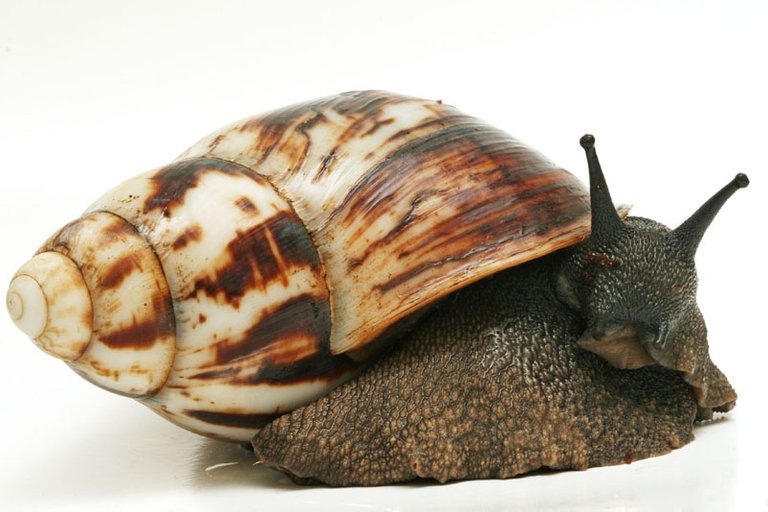
Another reason is because of it's high return limit. Alternate species are great as well yet I will center around Achatina and Archachatina Marginata in this blog entry since, they are anything but difficult to discover in Nigeria.
Having settled on the specie, how about we make you through the stride by step how to setup your snail cultivate in a little scale level and begins raising your snail towards reap.
Suitable Environment for Snail Farming
Snails are effortlessly dried out, and wind increment the rate of dampness free in snail which thusly, prompts the dryness of the creature. To keep snails from losing water so rapidly, your snaileries (the snail house) must be situated in condition that is shielded from wind.
A low plain, downhill site encompassed with enough trees is ideal for snail cultivating. You may plant plantains and bananas around your snail homestead to keep the effect of wind.
Type of Soil For Snail Farming
Snail's real environment is the dirt, and soil contains a portion of the segments and synthetic substances that it expected to survive. Be that as it may, not all dirts are reasonable for snail raising. The shell of the snail is principally calcium and it get a large portion of them from the dirt. Snail likewise lay it's eggs on the dirt and drink water out of the dirt.
Thus, the reasonable soil for snail cultivating must contain these components. Must be adjusted, not waterlogged, not very dry, and should not be acidic. The most alluring soil for snail is sandy-loamy soil with low water holding limit. Clayey soil and acidic soil must be maintained a strategic distance from.
Getting The Snails For Farming
To fire up a snail cultivate, it is prudent to get snails straightforwardly from the backwoods as opposed to purchasing from the market after they have been presented to daylight and have got dried out. This is on the grounds that snails drink a considerable measure of water, so are effectively got dried out and this worries them, and decrease their richness limit.
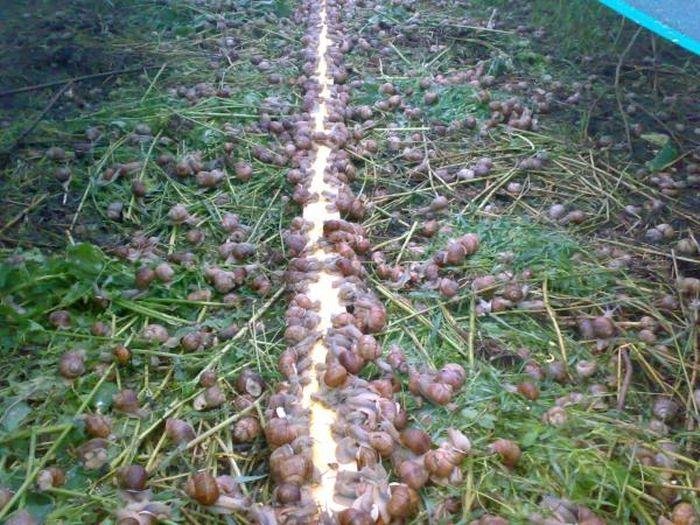
The aiming snail agriculturist could pick the snails from the hedge with an extremely basic strategy; clear a little segment of land amid blustery season and sprinkle hot natural products like pineapple, pawpaw, plantain, banana and so on at around 5o'clock at night, when you backpedal there around 7pm or 8pm, you will get snails appropriate for raising. Rehash the system until the point when you get enough amount.
Another way could be to get snail eggs littered in the commercial center where it is sold and through a system, check the ripeness of the eggs, since some of them more likely than not lost fruitfulness because of the introduction to daylight. The eggs are later put inside a compartment containing wet sand and secured with cocoyam leaf. Between 21 to 28 days, the eggs would bring forth into child snails. You begin encouraging them and progressively you raise a snail cultivate."
Constructing the Snail House (Snailery)
Snaileries can change from a fix of fence-secured ground, shielded from the breeze to a secured enclose in the event that you are reproducing little scale.
For bigger populace of snails, you can burrowed a trench or make a solid pen with soil profound of around 10 inches, and cover it with screen or wire all around to keep the snails from getting away. Keep in mind that snails can replicate quick and move toward becoming nuisances when their reproducing is uncontrolled.
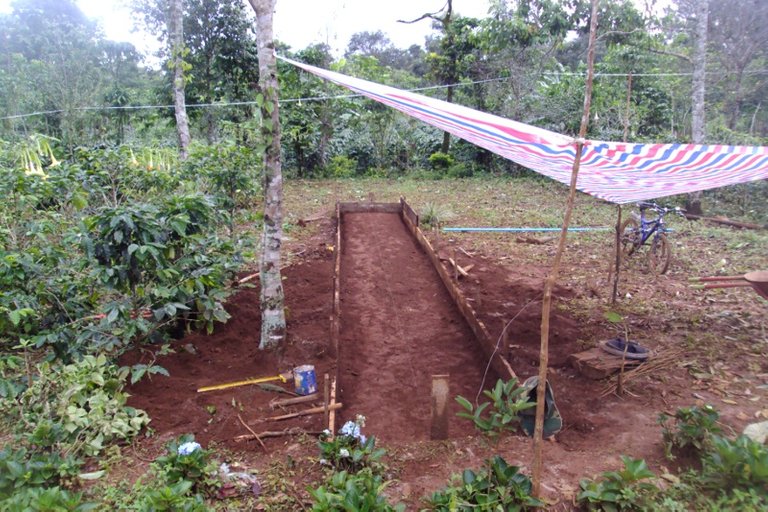
Snails love dull and frosty spots, yet ensure the stickiness does not drop to levels hurtful to the snails. You can utilize crisp leaves and fabric that is consistently wet to direct the temperature.
Additionally, the wire is valuable in warding off rats and winds or different predators from eating the snails in your snail cultivate. Be that as it may, beside these greater predators, you ought to be careful about littler ones like ants and termites. Your development must have these predators as a top priority.
Snail Food and Feeding
Snails particularly Achatina essentially bolsters on green leaves and natural products however they can use different scopes of sustenances. Encourage your snails leaves, natural products, or even equation from the nourish store. Beside nourishment to develop tissues, snails require calcium to develop shells.

Leaves: Cocoyam leaves, pawpaw leaves, okra leaves, cassava leaves, eggplant leaves, cabbage and lettuce clears out.
Organic products: Mango, eggplant, pawpaw, banana, tomatoes, oil palm natural products, pears. what's more, cucumber.
When they begin developing, isolate the huge ones from the little ones. It take over a year for the Achatina write to develop to collect size. Others develop in two years.
One hundred thousand snails following a year or two sold at the rate of N50 each (exceptionally lessened cost) will give you about N5 million! Isn't that a decent venture?
Harvesting the Snail
It isn't financially astute to reap your snails previously it's development, it must be developed before collecting. To know whether your snails are as of now sufficiently developed, check the overflow of the shell. On the off chance that it is sufficiently developed, the overflow ought to be thicker and harder than different parts of the shell.
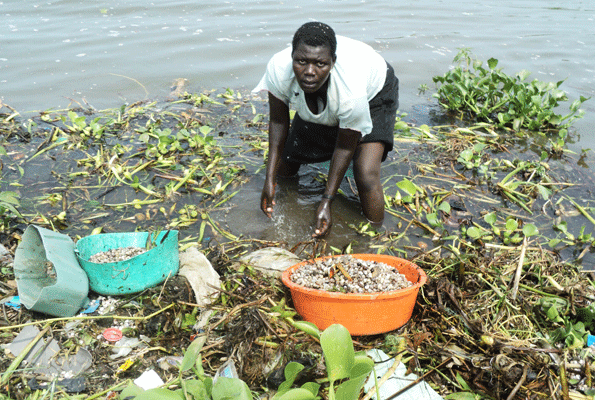
Hi! I am a robot. I just upvoted you! I found similar content that readers might be interested in:
https://steemit.com/farms/@rickjeo/snail-farming-in-nigeria